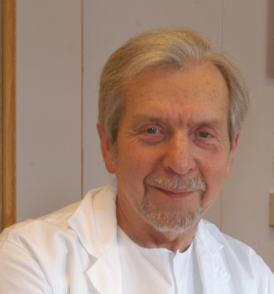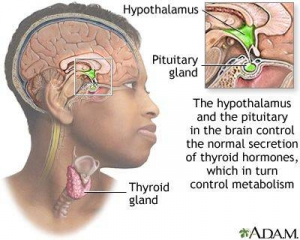Hypothyroidism is the medical condition caused by an underactive thyroid gland that is not producing sufficient quantities of thyroid hormones. It is the failure of the thyroid gland to function normally.

The standard treatment for Hashimoto’s disease is twofold:
1) treatment with a synthetic hormone called levothyroxine, which works like the T4 hormone that is naturally produced by the thyroid gland
2) monitoring of thyroid stimulating hormone levels
Lack of Focus on Selenium Status in Hashimoto’s Disease
However, more than 10% of Hashimoto’s disease patients have symptoms of hypothyroidism in spite of this levothyroxine treatment. In this context, there is generally a lack of focus on the patients’ selenium status, selenoprotein P status, and the status of the two deiodinase selenoenzymes that are involved in the activation of thyroid hormones and the conversion of the biologically inactive T4 hormone thyroxine to the biologically active T3 triiodothyronine hormone [Aaseth 2022].
The selenium containing DIO1 and DIO2 deiodinase enzymes are necessary to catalyze the release of iodine (i.e., deiodinate) from T4 to increase the quantity of circulating T3 [Aaseth 2022].

Attribution: Claire Moore, Public domain, via Wikimedia Commons.
A Role for Selenium Supplementation in Hashimoto’s Disease
As early as 2010, there was clinical evidence that suggested that selenium supplementation could be useful as an adjunctive therapy to levothyroxine (LT4) in the treatment of Hashimoto’s thyroiditis. A systematic review of studies involving patients diagnosed with Hashimoto’s thyroiditis and undergoing levothyroxine (LT4) treatment showed that selenium supplementation for 3 months was associated with significantly lower concentrations of thyroid peroxidase auto-antibodies (TPOAb) and with a significantly higher chance of improvement in well-being and mood when compared with controls [Toulis 2010].
Clinical Evidence for Selenium Supplementation of Hashimoto’s Disease Patients
Selenium yeast supplement
In a six-month randomized controlled trial (RCT) with a selenium yeast-treated group (n = 43) and no treatment in control group (n = 47), Hu et al. found that the selenium yeast treatment significantly decreased thyroid peroxidase antibody (TPOAb), thyroglobulin antibody (TGAb), and thyroid stimulating hormone (TSH) levels. The selenium yeast treatment – 200 mcg/day – significantly increased selenium, glutathione peroxidase 3 (GPx3), and selenoprotein P concentrations, compared with the control group [Hu 2021].
Moreover, the percentage of activated regulatory T cells was significantly higher in the selenium-treated group than in the control group. The selenium yeast supplementation had a beneficial effect on thyroid auto-antibodies and thyroid function by increasing the antioxidant activity and upregulating the activated regulatory T cells [Hu 2021].
In an open-label clinical study, researchers administered 200 mcg/day selenium yeast supplements to 100 Hashimoto’s disease patients with known selenium deficiency. After three and six months of supplementation, the patients’ serum selenium levels increased to moderate levels [Wang 2021].
The patients’ concentrations of thyroglobulin antibodies (TGAb) decreased significantly after six months of selenium supplementation. In the high antibody group, the thyroid peroxidase antibodies (TPOAb) decreased significantly after 3 and 6 months of selenium supplementation.
The researchers concluded that, in patients with autoimmune thyroiditis and normal thyroid reference range, there was a general selenium deficiency. After six months of treatment with selenium yeast, there were significant reductions in the concentrations of TGAb and TPOAb antibodies.
Sodium selenite supplement
In a an open-label clinical trial, researchers administered selenium in the form of sodium selenite at a dose of 100 mcg/day for 6 months to newly diagnosed and previously untreated Hashimoto’s thyroiditis with either normal production of thyroid hormone or sub-clinical hypothyroidism. 29 women completed the study.
The selenium supplementation increased the concentrations of selenium and selenoprotein P in the serum and decreased significantly the level of anti-thyroid peroxidase antibodies, thus limiting the development of overt hypothyroidism [Kryczyk-Kozioł 2021].
Autoimmunity to Selenoprotein P in Hashimoto’s Disease
Selenium is needed for the synthesis of the protective antioxidant glutathione peroxidase selenoenzymes. Selenoprotein P is the primary transporter of selenium in the body.
In 2021, Sun and a team of researchers reported finding natural auto-antibodies to selenoprotein P in patients with thyroid disorders (ca. 6-7 % of patients). The autoimmunity to selenoprotein P impairs selenium transport and negatively affects the biosynthesis of the glutathione peroxidases [Sun 2021].
It may be that, in cases of selenoprotein P deficiency, selenium supplementation will be needed to compensate.
Clinical Evidence for Selenium Supplementation of Elderly Citizens with Normal Thyroid Function
In the Danish PRECISE pilot study (PRECISE = PREvention of Cancer by Intervention with Selenium), a randomized, double-blind, placebo-controlled trial, researchers administered selenium yeast supplements to 491 males and females aged 60–74 years as follows [Winther 2015]:
- 100 mcg/day (n = 124)
- 200 mcg/day (n = 122)
- 300 mcg/day (n = 119)
- Matching yeast-based placebo tablets (n = 126)
Equally distributed across the four groups, 361 study participants completed the 5-year intervention period. The study data showed that the plasma selenium concentrations increased significantly and dose-dependently in the active treatment groups.
The serum TSH and FT4 concentrations decreased significantly and dose-dependently, per 100 mg/day dose increase. There were no observed significant effects of the active treatment on FT3 and FT3:FT4 ratio.
The researchers concluded that, in elderly study participants with normal thyroid function, the selenium yeast supplementation affected thyroid function minutely and in a dose-dependent manner, as compared with placebo. Their findings indicated that selenium supplementation is not indicated for individuals with normal thyroid function. However, they remarked that the question of selenium supplementation in the treatment of autoimmune thyroid diseases was still unresolved [Winther 2015].
The CATALYST Study of Selenium Supplementation and Quality of Life for Hypothyroidism Patients
Nearing its completion in summer 2022, the CATALYST Trial (CATALYST = Chronic Autoimmune Thyroiditis quality of Life Selenium Trial) may shed some light on the effect of selenium yeast supplementation versus placebo on the quality of life of patients with chronic autoimmune thyroiditis [Winther 2014].
Researchers have administered 200 mcg selenium-enriched yeast or matching placebo tablets daily for 12 months. They have evaluated thyroid-related quality of life using the Thyroid Patient-Reported Outcome (ThyPRO) questionnaire. They have also measured serum thyroid peroxidase antibody concentration, serum triiodothyronine/thyroxine ratio, levothyroxine dosage, adverse reactions, and serious adverse reactions and events.
Publication of the study data is expected in the latter part of 2022.
Summary and Conclusion: hashimoto’s Disease patients benefit from Selenium Supplementation
- Selenium is a trace mineral essential for human health with antioxidant and anti‐inflammatory effects as well as beneficial effects on thyroid hormone metabolism.
- Selenium yeast supplementation has been associated with reductions in thyroid auto-antibodies and thyroid stimulating hormone levels in patients with Hashimoto’s disease.
- Selenium supplementation may benefit patients with Hashimoto’s disease with low selenium status and may prevent thyroid dysfunction in the course of the disease.
Sources
Aaseth, JO. Private communications. 3 June 2022.
Hu Y, Feng W, Chen H, Shi H, Jiang L, Zheng X, Liu X, Zhang W, Ge Y, Liu Y, Cui D. Effect of selenium on thyroid autoimmunity and regulatory T cells in patients with Hashimoto’s thyroiditis: A prospective randomized-controlled trial. Clin Transl Sci. 2021 Jul;14(4):1390-1402.
Kryczyk-Kozioł J, Zagrodzki P, Prochownik E, Błażewska-Gruszczyk A, Słowiaczek M, Sun Q, Schomburg L, Ochab E, Bartyzel M. Positive effects of selenium supplementation in women with newly diagnosed Hashimoto’s thyroiditis in an area with low selenium status. Int J Clin Pract. 2021 Sep;75(9):e14484.
Sun Q, Mehl S, Renko K, Seemann P, Görlich CL, Hackler J, Minich WB, Kahaly GJ, Schomburg L. Natural Autoimmunity to Selenoprotein P Impairs Selenium Transport in Hashimoto’s Thyroiditis. Int J Mol Sci. 2021 Dec 3;22(23):13088.
Toulis KA, Anastasilakis AD, Tzellos TG, Goulis DG, Kouvelas D. Selenium supplementation in the treatment of Hashimoto’s thyroiditis: a systematic review and a meta-analysis. Thyroid. 2010 Oct;20(10):1163-73.
Wang LF, Sun RX, Li CF, Wang XH. The effects of selenium supplementation on antibody titres in patients with Hashimoto’s thyroiditis. Endokrynol Pol. 2021;72(6):666-667.
Winther KH, Bonnema SJ, Cold F, Debrabant B, Nybo M, Cold S, Hegedüs L. Does selenium supplementation affect thyroid function? Results from a randomized, controlled, double-blinded trial in a Danish population. Eur J Endocrinol. 2015 Jun;172(6):657-67.
Winther KH, Watt T, Bjørner JB, Cramon P, Feldt-Rasmussen U, Gluud C, Gram J, Groenvold M, Hegedüs L, Knudsen N, Rasmussen ÅK, Bonnema SJ. The chronic autoimmune thyroiditis quality of life selenium trial (CATALYST): study protocol for a randomized controlled trial. Trials. 2014 Apr 9;15:115.
The information presented in this review article is not intended as medical advice and should not be used as such.
15 July 2022
